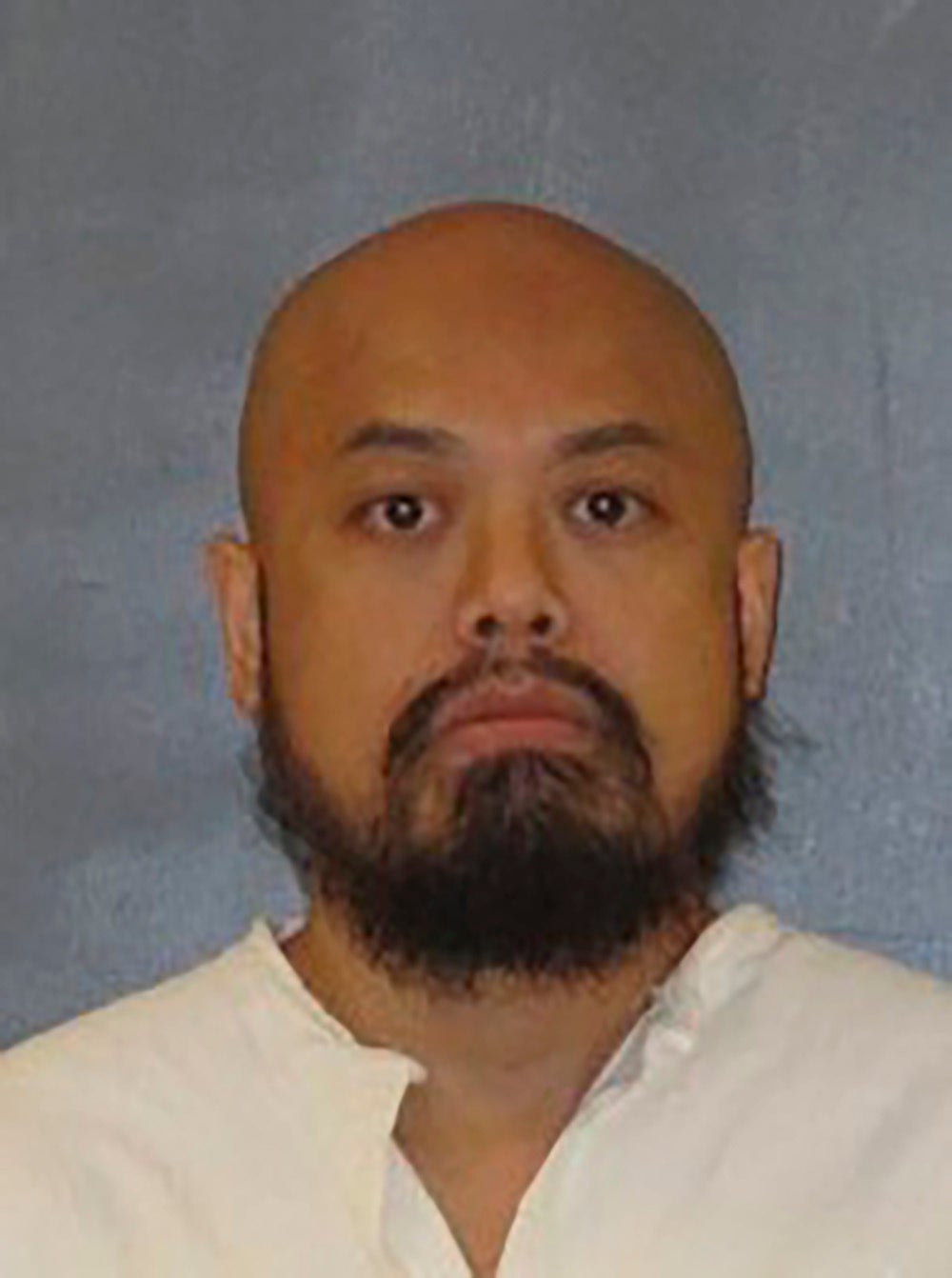Texas to execute man for slaying of Dallas real estate agent
A man who fatally stabbed a real estate agent inside a model home in suburban Dallas faces execution, more than 16 years after the slaying

Your support helps us to tell the story
From reproductive rights to climate change to Big Tech, The Independent is on the ground when the story is developing. Whether it's investigating the financials of Elon Musk's pro-Trump PAC or producing our latest documentary, 'The A Word', which shines a light on the American women fighting for reproductive rights, we know how important it is to parse out the facts from the messaging.
At such a critical moment in US history, we need reporters on the ground. Your donation allows us to keep sending journalists to speak to both sides of the story.
The Independent is trusted by Americans across the entire political spectrum. And unlike many other quality news outlets, we choose not to lock Americans out of our reporting and analysis with paywalls. We believe quality journalism should be available to everyone, paid for by those who can afford it.
Your support makes all the difference.A man who fatally stabbed a real estate agent inside a model home in suburban Dallas faces execution Wednesday evening, more than 16 years after the slaying.
Kosoul Chanthakoummane was on parole when he was condemned for killing 40-year-old Sarah Walker in July 2006. She was found stabbed more than 30 times in the model home in McKinney, about 30 miles (48 km) north of Dallas.
Prosecutors say Chanthakoummane entered the model home and then beat Walker with a wooden plant stand and stabbed her before stealing her Rolex watch and a silver ring, which were never found. DNA evidence showed Chanthakoummane’s blood was found in various places inside the model home, including under Walker’s fingernails.
Walker had been a top-seller for home builder D.R. Horton. She had been recently divorced and had two children.
Chanthakoummane, 41, the son of immigrants from Laos, has acknowledged he was in the model home but said he only went inside to get a drink of water. He had been on parole in Texas after serving time in North Carolina for aggravated kidnapping and robbery.
“I am innocent,” Chanthakoummane said in a letter filed in federal court in March.
His attorneys had asked the Texas Court of Criminal Appeals to stay his execution, challenging the DNA evidence, which was previously described by the appeals court as the “linchpin of the state’s case.” The appeals court this week denied the request. Eric Allen, one of Chanthakoummane’s attorneys, said he hadn't decided if he would file a final appeal with the U.S. Supreme Court.
His attorneys had argued new science raises the possibility Chanthakoummane’s DNA could have been transferred to Walker’s fingernails without any direct contact between the two.
But authorities say prior DNA testing in his case has failed to clear Chanthakoummane.
“Any belief by Chanthakoummane that further DNA investigation would yield results that will be helpful to his case is a fantasy,” lawyers with the Texas Attorney General’s Office wrote in court documents last month.
On Monday, the Texas Board of Pardons and Paroles declined to grant Chanthakoummane either a 120-day reprieve or a commutation of his death sentence to a lesser penalty.
Chanthakoummane’s attorneys say their concerns about the DNA evidence is part of a pattern by prosecutors of using faulty evidence in the case.
At Chanthakoummane’s trial, a forensic dentist testified the death row inmate was the source of a bite mark on Walker’s neck. Such evidence has since been discredited and in 2016, Texas became the first state to call for banning bite mark analysis in criminal cases.
The two witnesses who said they saw Chanthakoummane near the murder scene were hypnotized by officers with the Texas Department of Public Safety, or DPS, to help identify him.
A 2020 report by the Dallas Morning News found most Texas judges still allow evidence derived from hypnosis despite criticism it can distort memories and lead to wrongful convictions. In January 2021, DPS stopped using hypnosis. Last year, Gov. Greg Abbott vetoed a bill that would have banned people who have been hypnotized from testifying in a criminal trial.
In October 2020, the Texas Court of Criminal Appeals found that while the bitemark testimony would no longer be admissible in court, Chanthakoummane’s attorneys had failed to discredit the hypnosis-related testimony.
The appeals court also found the DNA evidence was still strong.
At his trial, Chanthakoummane’s attorney, Keith Gore, told jurors his client was guilty “and he wanted to rob (Walker), and it didn’t go the right way, and he killed her.”
Walker’s father, Joseph Walker, who died last year, had opposed Chanthakoummane’s execution and had told the Times Union in New York in 2013 he had forgiven his daughter’s killer.
If Chanthakoummane is executed, he would be the second inmate put to death this year in Texas and the ninth in the U.S.
While Texas has been the nation’s busiest capital punishment state, the use of the death penalty in the state has reached near historic lows. Juries have continued to issue fewer death sentences and in the last couple of years most executions have been delayed by the pandemic or by legal questions over what spiritual advisers can do in the death chamber.
___
Follow Juan A. Lozano on Twitter: https://twitter.com/juanlozano70